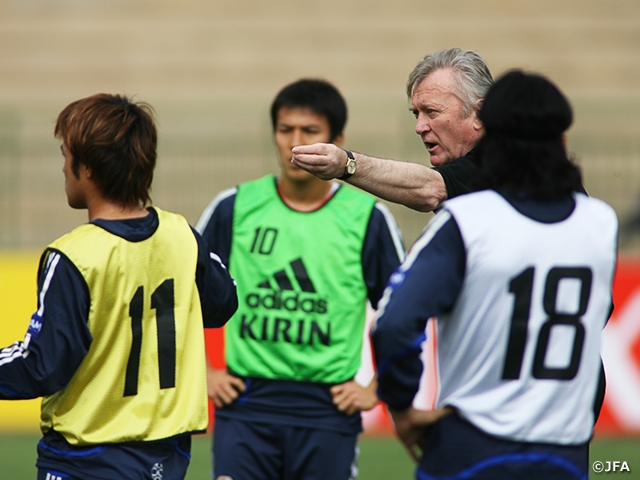NEWS
It’s important to listen first - Always have respect Vol.79
24 December 2019

Latin was the language used by the ancient Romans, and the language originates from the dialect spoken by the tribal group named Latini, who played a key role in the formation of the Roman Republic. Through the growth of the Roman Empire, Latin became the dominant language of the world, and even after the fall of the Roman Empire, the language was utilised in literatures and technical terminologies until recent times. Although there are no countries that uses Latin as their official language, its influence is apparent in many modern languages in Europe.
For an example, the word “Respect” is a word derived from a Latin word “Specere,” which means “to look at.” By adding the prefix “Re,” which is a Latin prefix meaning “Back” or “Again,” the word “Respicere” was created that meant to "look back at, regard, consider."
Therefore, the first step of respect is to “Look at” others. However, in reality, it is not sufficient just to look at someone, but you must also “Listen” to them in order to pay respect.
Showing respect to others is a crucial factor when building a relationship. It is said that constructive communication can only be developed through mutual respect. That is why it is necessary to “Listen.”
However, you cannot be listening inattentively. You must look at their eyes and make gestures that you are indeed listening to their words. Through these body languages, they will recognise that they are being respected by you.
In an article of this column issued in April 2014, I wrote about an action taken by a referee during a J.League match. The scene came when the referee slowly approached the coach who was making objections towards his calls. Instead of ordering the coach to shut up, he listened to what the coach had to say for about 10 seconds and nodded twice. Then he tapped his chest as if to say “Don’t worry, because I am watching everything very carefully.”
Following this moment, the coach regained his composure and started to focus on giving directions towards his players, rather than making objections towards the referee.
As a coach of a women’s football team myself, I sometimes feel that my players are not listening to what I am saying. They are too focused on their own discussions to hear my words. In situations like that, I would raise my voice out of frustration and yell out “Listen!” However, anger will never solve such situation. The players will just wait until I am done with my story and resume their discussions as soon as I finish my words.
In order to make my players listen to me, I tried many things. For instance, instead of raising my voice, I tried lowering my voice in certain situations.
This idea came from Mr. Ivica OSIM, as his voice was always small on the pitch, but his players always seemed to listen to him very carefully. The players would rejoice when they heard him say “Bravo” with his small voice.
Looking back on the relationship between Mr. Osim and the players, the players reacted the way they did because they had tremendous respect towards their coach. The players listened closely because they didn’t want to miss a single word coming from their coach’s mouth. And obviously, Mr. Osim was not lowering his voice just to attract their attention.
In order to be respected by the players, the coach must first listen to the players and understand their feelings and thoughts. Without that process, the players will not feel respected by their coach and will not listen to the coach’s words.
It doesn’t matter if you agree or disagree with what the they are saying. You must show that you are willing to sympathise with them and listen to their words without interrupting them. That is the first step of respect. I am feeling embarrassed while writing this article, because I am realising that this is exactly the opposite of what I am doing at a regular basis.
Written by OSUMI Yoshiyuki (Football Journalist)
*This article was originally posted on the Japan Football Association Newsletter, “JFAnews,” November 2019 edition.
Japan Football Association Newsletter “JFAnews”
The Japan Football Association Newsletter “JFAnews” contains all the information on the Japan National Team, and all the events hosted by the JFA. Tournament results and team information throughout the nation are also available. The official monthly magazine is a must read for coaches, referees, and all members of the football family.
For information on the newest edition (Japanese website)
Related News
-
Respect
2019/11/19
The right “distance” to show respect - Always have respect Vol.78

-
Respect
2019/10/30
Do not disturb the conversation between the referees - Always have respect Vol.77

-
Respect
2019/09/25
The crisis of football refereeing - Always have respect Vol.76

-
Respect
2019/08/27
Taking good care of others - Always have respect Vol.75

-
Respect
2019/07/30
Ways to save football - Always have respect Vol.74

Latest News
-
National Teams
2026/02/12
U-17 Japan National Team squad & schedule - Prayer for Peace; Hiroshima International Youth Soccer Games 2025 (2/17-23@Hiroshima)

-
National Teams
2026/02/12
Nadeshiko Japan (Japan Women's National Team) squad & schedule - AFC Women's Asian Cup™ Australia 2026 (2/23-3/22)

-
National Teams
2026/02/09
U-16 Japan Women's National Team short-listed squad & schedule - Training Camp (2/16-19@Okayama)

-
Referees
2026/02/05
JFA launches "Development Group" in refereeing Mike Riley signed as Referee Development Director

-
National Teams
2026/02/04
U-16 Japan National Team squad & schedule - 4 Nations Tournament (2/9-19@Algarve, Portugal)


